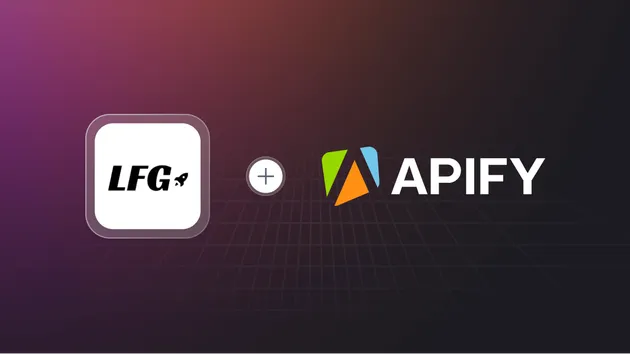Minor Planet Center Scraper
Pricing
$0.10 / 1,000 results
Minor Planet Center Scraper
Extract comprehensive asteroid data from the Minor Planet Center's MPCORB.DAT database through Asterank's powerful API. Get detailed orbital parameters, physical characteristics, and observational data for over 600,000 asteroids with flexible filtering capabilities.
Pricing
$0.10 / 1,000 results
Rating
0.0
(0)
Developer

Conduit
Actor stats
0
Bookmarked
3
Total users
2
Monthly active users
4 months ago
Last modified
Categories
Share
🌌 Minor Planet Center Asteroid Scraper
Extract comprehensive asteroid data from the Minor Planet Center's MPCORB.DAT database through Asterank's powerful API. Get detailed orbital parameters, physical characteristics, and observational data for over 600,000 asteroids with flexible filtering capabilities.
✨ Why Use Minor Planet Center Asteroid Scraper?
- 🚀 Fast & Efficient - Direct API access delivers asteroid data in seconds
- 📊 Rich Data - Complete orbital parameters, physical properties, and observational history
- 🔍 Powerful Filtering - MongoDB-style queries for precise asteroid selection
- 📈 Scalable - Retrieve from 1 to thousands of asteroids in a single request
- 🎯 Reliable - Data updated nightly from the official MPC database
- 📋 Clean Output - Structured JSON data ready for research and analysis
📥 Input Parameters
| Parameter | Type | Required | Default | Description |
|---|---|---|---|---|
| query | Object | ❌ No | {} | MongoDB-style query to filter asteroids (e.g., {"e":{"$lt":0.1},"i":{"$lt":4},"a":{"$lt":1.5}}) |
| limit | Integer | ❌ No | 100 | Maximum number of asteroids to return (range: 1-1000) |
| proxyConfiguration | Object | ❌ No | { useApifyProxy: true } | Proxy settings to avoid rate limiting |
Note: The API supports complex MongoDB-style queries with operators like
$lt,$gt,$ne,$in, etc.
📖 Usage Examples
Example 1: Get All Asteroids
Retrieve the first 100 asteroids without any filtering:
Example 2: Near-Earth Asteroids
Find asteroids with semi-major axis less than 1.5 AU:
Example 3: Circular Orbits
Find asteroids with nearly circular orbits (low eccentricity) and low inclination:
Example 4: Bright Asteroids
Find bright asteroids with low absolute magnitude:
Example 5: Recently Observed
Find asteroids observed in 2023 or later:
📤 Output Data
Each asteroid result includes comprehensive orbital and physical data:
| Field | Type | Description |
|---|---|---|
| rms | Number | RMS residual of orbital solution |
| epoch | String | Epoch of orbital elements |
| readable_des | String | Human-readable designation (e.g., "(1) Ceres") |
| H | Number | Absolute magnitude |
| num_obs | Number | Number of observations |
| ref | String | Reference for orbital elements |
| G | Number | Slope parameter |
| last_obs | String | Date of last observation |
| comp | String | Computer used for orbit calculation |
| M | Number | Mean anomaly |
| U | String | Uncertainty parameter |
| e | Number | Eccentricity |
| a | Number | Semi-major axis (AU) |
| om | Number | Longitude of ascending node (degrees) |
| pert_p | String | Perturbing planets |
| d | Number | Mean daily motion (degrees/day) |
| i | Number | Inclination (degrees) |
| des | String | Asteroid designation |
| flags | String | Processing flags |
| num_opp | Number | Number of oppositions observed |
| w | Number | Argument of perihelion (degrees) |
| pert_c | String | Perturbing comments |
Sample Output
Data is delivered in clean JSON format, ready to download as JSON, CSV, Excel, or integrate via API.
🔍 Query Operators
The API supports standard MongoDB query operators:
- Comparison:
$lt(less than),$gt(greater than),$lte,$gte,$ne(not equal) - Membership:
$in(in array),$nin(not in array) - Logical:
$and,$or,$not - String:
$regex(regular expression),$exists
❓ FAQ
Q: How many asteroids are in the database?
A: Over 600,000 asteroids with data updated nightly from the MPC.
Q: What do the orbital parameters mean?
A: a = semi-major axis (AU), e = eccentricity, i = inclination (degrees), H = absolute magnitude.
Q: Can I filter by discovery date?
A: The API focuses on orbital parameters. Use the last_obs field for recent observations.
Q: Are there rate limits?
A: Yes, using Apify Proxy is recommended to avoid rate limiting from the Asterank API.
Q: Can I get data for specific asteroids?
A: Yes, use the des field with exact designation matching in your query.
📚 Data Source
This scraper uses the Asterank API which provides access to the Minor Planet Center's MPCORB.DAT database. The MPC is the official international organization responsible for collecting observational data on minor planets (asteroids and comets).
- Data Provider: Minor Planet Center (MPC)
- API Provider: Asterank
- Update Frequency: Nightly
- Coverage: All numbered asteroids and many unnumbered objects
Perfect for astronomical research, orbital dynamics studies, and asteroid tracking applications!


